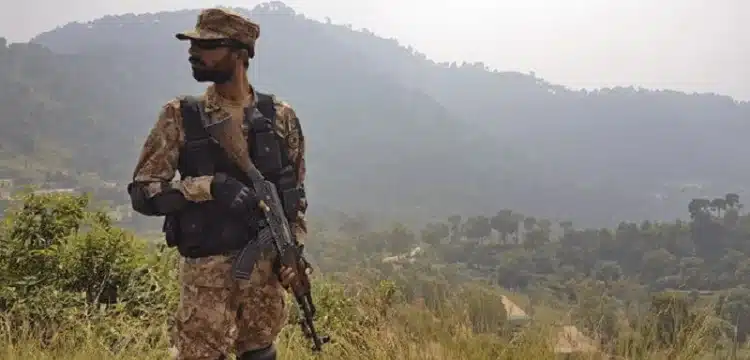[vc_row][vc_column][vc_column_text dp_text_size=”size-4″]Caretakers’ choice to continue the previous elected government’s effort was “beyond its mandate,” according to LHC rules. Lands will revert to the ownership of the government or department that previously owned them.
LAHORE: The Lahore High Court on Wednesday overturned the interim government of Punjab’s decision to transfer over 45,000 acres of property in three districts to the army on a 20-year lease, ruling that the deal exceeded both the caretakers’ and the military’s jurisdiction.
The army desired land in Bhakkar, Khushab, and Sahiwal for Corporate Agriculture Farming (CAF) as part of the China-Pakistan Economic Corridor (CPEC).
“The caretaker government lacks the constitutional and legal mandate to take any decision regarding the CAF initiative and policy in any manner whatsoever, in terms of Section 230 of the Elections Act 2017,” Justice Abid Hussain Chattha stated in a thorough verdict on four identical petitions.
The Public Interest Law Association of Pakistan (Pilap), a non-profit legal group, and others submitted the petitions.
The petitioners were represented by Ahmad Rafay Alam, Fahad Malik, and Zohaib Babar.
The Punjab caretaker administration decided to lease the army 45,267 acres of land in the districts of Bhakkar, Khushab, and Sahiwal for 20 years. There was also the option of extending the agreement for another ten years.
Also Read: The drama outside Lal Masjid evokes unpleasant memories.
On March 29, Justice Chattha halted the contested transaction and reserved the ultimate verdict for May 29.
The judge ruled that the transaction comprising of decisions made and consent given to the revised Statements of Conditions (SOCs) in a meeting of a ministerial committee on Oct 14 last year and a meeting of the interim cabinet on Feb 9 was illegal and had no legal effect.
All following notices and developments, including the sanction or transfer of state land to the Pakistan Army, were also declared null and illegal, according to Justice Chattha.
The domain of elected government
The LHC judgement stated that the caretaker cabinet’s move to authorise the new SOCs amounted to pre-empting the exercise of authority by elected governments.
According to Section 230 of the Elections Act of 2017, the act of the caretaker government to pick up the thread dropped by the previous elected government and continue was beyond its scope and mission. “It was a blatant attempt to encroach upon the domain of future elected governments.”
As a result, the judge observed, the idea that the caretaker cabinet was just carrying out an already approved corporate farming proposal of the previously elected government in pursuance of the latter’s ‘in principle’ acceptance is a fiction.
Commenting on the “hurry” with which the impugned transaction was approved at various stages, Justice Chattha noted that the Pakistan Army, as a potential lessee, directly approached the Punjab government seeking land for the CAF through a letter on February 8, even before the caretaker cabinet approved new SOCs.
The judge ruled that the Pakistan Army’s claim that it has experience developing barren land was not backed by factual or statistical facts.
“It was merely a bald claim accompanied by a push for its self-proclaimed assistance and cooperation for the CAF initiative,” Justice Chattha remarked.
The judge stated that the administration of military lands and cantonments was under the administrative control of the defence ministry, and that the venture into CAF initiative by the Director General of Strategic Projects (DGSP) of the adjutant general’s branch GHQ was not approved by the federal cabinet.
The judge stated that during arguments, it was asserted that the DGSP acted on the basis of the chief of army staff’s support of the CAF programme.
“It is safely concluded that even if such approval existed, doing so without the approval of the federal government was unconstitutional and unlawful,” the judge said.
Incorrect assertion
The notion that the CAF project did not require federal government clearance since it was a business contract, according to Justice Chattha, was incorrect. The reasoning was blatantly contrary to Article 245 of the Constitution and the Supreme Court’s ruling that the military forces cannot act on their own without the sanction or guidance of the government.
The judge ruled that the government’s and DGSP’s joint venture to implement the corporate farming plan was unlawful since it exceeded the army’s mission.
He expressed optimism that the Pakistan Federation, in collaboration with the army, navy, and air force leaders, would examine all army actions and programmes. They must be prepared to take corrective action to guarantee that the armed forces’ activities are in accordance with their constitutional and legal mandates, according to Justice Chattha.
[/vc_column_text][/vc_column][/vc_row]











